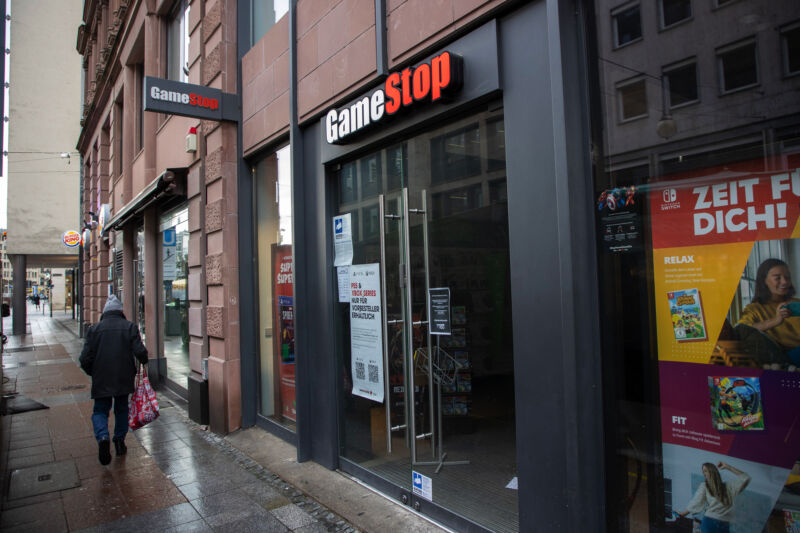
You've probably seen stories about GameStop, the struggling video game retailer that has improbably seen its stock quintuple since the start of the week. The stock isn't up because GameStop announced strong financial results or a new turnaround strategy. Instead, it was the focus of a coordinated buying campaign by members of the WallStreetBets subreddit.
The effort has been so effective in part because its architects have convinced people that it's not just a pump and dump scheme. Instead, they've painted a seductive story in which retail investors found a loophole that allows them to make money at the expense of hedge funds and other wealthy investors who had shorted the stock.
In reality, most of the gains captured by early GameStop investors will come at the expense of later investors who will be left holding the bag when the stock falls.
Squeezing the shorts
When an investor shorts a stock, they borrow a share and immediately sell it. When the loan is over, the borrower has to buy a share on the open market and return it to the lender. If the stock's price goes down in between these trades, the borrower makes a profit. If it goes up, the borrower loses.
Clever redditors noticed that GameStop was one of the most shorted stocks on Wall Street. Indeed, wealthy investors had shorted more shares of stock than the total number of shares available to trade. If a heavily shorted stock rises in value, that can lead to a phenomenon called a "short squeeze," where short sellers trying to close out their short positions are all trying to buy the stock at the same time, pushing up its value still further and increasing their losses.
Some redditors believe that a short squeeze was part of the reason that GameStop's stock rose so rapidly over the last week. As redditors pushed up its value, brokers started calling investors with short positions and asking them to put up more capital to cover the potential losses. Some shorts were forced to close out their short positions instead, which meant buying shares of GameStop. That created further demand for the stock and pushed its price up still further.
In the minds of many redditors—and a number of pundits—this maneuver is a way to transfer massive amounts of wealth from Wall Street insiders to the general public. Vice's Jason Koebler, for example, wrote that "we are seeing one of the largest wealth transfers from the financial ruling class to the middle and middle-upper classes in recent memory."
What went up will probably come down
There's just one problem: the billions of dollars in new "wealth" people have supposedly gained is mostly in the form of inflated GameStop stock. Before they can actually use that wealth, they need to convert it to cash. And if a lot of people start selling their shares, the stock will crash. Most of that GameStop "wealth" will evaporate, with many shareholders getting a fraction of the value they expected.
Meanwhile, if GameStop's stock price starts to fall, short sellers will start to make money. Any short sellers who maintained their short positions through the bubble will make back most of what they lost.
Sooner or later, GameStop's stock is going to return to normal levels. And when it does, we are likely to find that little wealth was actually transferred from wealthy hedge fund investors to the general public. Short losses as the stock appreciated will be largely balanced out by short gains as the stock falls. The gains of GameStop shareholders as the stock appreciates will be balanced by losses as the stock declines.
But while there won't be a big transfer between short sellers as a group to shareholders as a group, there will be big wealth transfers within these groups. People who bought GameStop early and who had the good sense to sell near the top of the bubble will make a lot of money. People who buy into GameStop near the top and don't sell until after the stock starts to fall will lose money.
In other words, the GameStop bubble will have the same practical effect as any other pump-and-dump scheme: transferring wealth from those who got into the scheme late to those who got into it early. The fact that there are short-sellers on the other side of some of these trades doesn't change the analysis.
So if you're thinking about getting in on the GameStop craze—or buying other stocks promoted by the WallStreetBets crowd—you should be cautious. The biggest winners will be the folks who bought into the scheme days, weeks, or months ago. If you buy in now, there's a good chance you'll be one of the suckers who gets left holding the bag after the stock crashes.
And if you were lucky enough to get into GameStop days or weeks ago, you should seriously consider selling. At a minimum, sell enough to recoup your initial investment. Because not everyone who made big paper profits will see those gains realized.
reader comments
1042